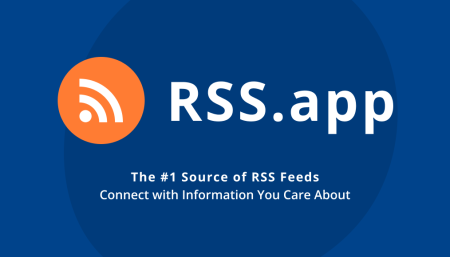For savers, choosing how to best allocate money among a stream of account types may seem an impossible task.
There are 401(k) plans, individual retirement accounts, 529 plans, high-yield savings accounts, taxable brokerage accounts, flexible spending accounts, health savings accounts and so on — a veritable hodgepodge of letters, numbers and tax rules.
Each saver is different, meaning the optimal financial answer will vary from person to person.
More from Personal Finance:
Your 401(k) could have these hidden risks, experts say
3 things to consider before making a Roth conversion
Why health insurance is poised to make inflation jump
But for many people, there seems a clear path: After saving enough money to get your company’s full 401(k) match, save your next dollars in a health savings account if you have access to one, according to financial advisors.
“Imagine a Roth IRA, but extra strength,” said Sabino Vargas, a certified financial planner and senior financial advisor at Vanguard Group.
HSAs have unique and powerful tax benefits
“People don’t think about the HSA as being so beautiful, but it really is,” said Carolyn McClanahan, a CFP based in Jacksonville, Florida, and a member of CNBC’s Advisor Council.
That beauty is largely due to the outsized tax benefits of HSAs — which are meant for health-care expenses — relative to other accounts.
HSAs offer a unique “triple tax advantage,” said Vargas. Specifically, contributions are tax-free, investment growth is tax-deferred and withdrawals are tax-free if used for eligible medical costs.
That means a saver would generally rarely if ever pay tax on their HSA money, unlike retirement accounts such as a pre-tax or Roth IRA.
Consider this analysis from a new Vanguard report: A $1 investment in a pre-tax or Roth IRA would yield $2.98 after 25 years. The same $1 invested in an HSA would yield $4.29 over that time. (The analysis makes various assumptions about investment returns and tax rates.)
Because health-care costs are “inevitable” in old age, the HSA functions like “an off-label account for retirement preparation,” Vargas said.
HSAs have other advantages, too. For example, savers can invest some or all of their balance. The accounts are also portable, meaning savers can take the money with them if they leave an employer.
Consumers should generally save enough in cash in an HSA to cover their insurance deductible and invest the remainder, as one would with retirement funds. Anyone who can afford to do so should try to pay out of pocket for current health costs and allow HSA investments to grow, advisors say. You can save those receipts and redeem them years down the line (more on that later).
The IRS counts qualified medical expenses as those generally eligible for the medical and dental expenses tax deduction. Those expenses are listed in IRS Publication 502. The list is relatively expansive, advisors said.
If HSA funds are used for non-qualifying health costs, they’d lose one prong of their three-pronged tax benefits: Savers would owe income tax on a withdrawal. However, in this sense they’d still be taxed similarly to a 401(k) or IRA. (Note: HSA users younger than age 65 would owe a 20% tax penalty in addition to income tax.)
To be sure, not everyone has access to an HSA. They are only available to people enrolled in a high-deductible health plan, which have become more prevalent but may not be offered by your employer. A high-deductible plan also may not make financial sense for certain people relative to a traditional co-pay health plan.
The order of operations for saving money
Budgeting constraints are common for the typical person, meaning there’s only so much (if any) money left over after necessities to fund savings or pay down debt.
Workers with access to a 401(k) plan should first prioritize saving enough to get their full employer match, advisors said.
“We never want to leave free money on the table,” Vargas said.
A 401(k) can also serve as an emergency fund due to hardship withdrawals allowed by most employers.
The second priority would generally be to max out an HSA, said McClanahan, founder of Life Planning Partners. Individuals can contribute up to $3,850 and families up to $7,750 in 2023.
Imagine a Roth IRA, but extra strength.
Sabino Vargas
senior financial advisor at Vanguard Group
There are some caveats that might change this HSA calculus. For example, if a saver has credit-card debt, paying that down would take priority over funding an HSA, McClanahan said.
Likewise for someone without an emergency fund: Work on having at least one month of living expenses in savings, then max out your HSA, then prioritize expanding emergency savings to three to six months, McClanahan said.
If there’s money left over, ensuing saving priorities might include IRAs, 529 plans, additional 401(k) savings and taxable accounts, advisors said.
There’s another big HSA benefit
Aside from tax benefits, there’s another handy feature of HSAs: the ability to repay yourself at any time.
Someone who pays out of pocket for a qualified health-care expense can withdraw that money from their HSA at any point in the future.
Here’s an example of how it works from Vanguard: “Let’s say you pay $4,000 out of pocket today for your child’s braces. If you save the receipt, you can reimburse yourself for that expense later by withdrawing that same $4,000 — tax-free — to pay for a nonmedical expense like college tuition or retirement costs.”
There are caveats: For one, the expense must have occurred after opening an HSA. You must save your receipts, too. McClanahan suggests keeping a spreadsheet of unreimbursed health costs in case receipts fade over time.
Read the full article here









